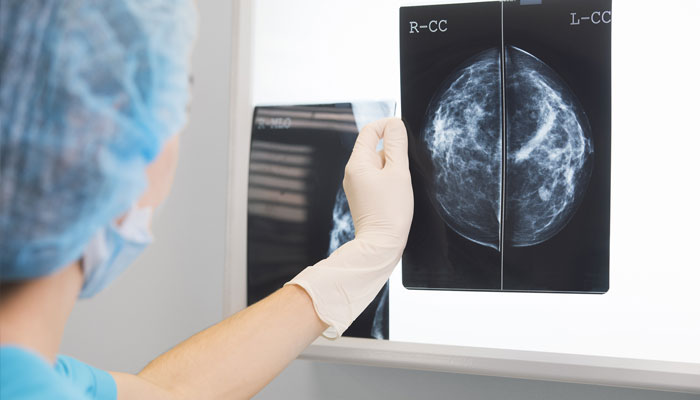
Why Breast Density Matters
When you visit your doctor for your annual mammogram, your physician may mention breast density. Density refers to the ratio of glandular tissue to fatty tissue. Women with more glandular tissue than fatty tissue may face an increased risk for breast cancer.
Why Breast Density Matters
On mammograms, glandular tissue shows up as white streaks and pockets, whereas fatty tissue shows up as darker areas. Tumors also show up as white areas within the breast. In patients with dense and very dense breasts, glandular tissue can mask the presence of tumors. Density also correlates with a slightly elevated risk for cancer. Understanding breast density will help you understand your personal risk factors and plan preventive screenings accordingly.
How Doctors Determine Breast Density
If more than half of the tissues in your breast are glandular, you have dense breasts. A trained radiologist will examine a woman’s mammogram results and use a Breast Imaging Reporting and Data System (BI-RADS) to determine density. Unfortunately, you cannot simply look at your breasts or feel them to determine if you have a certain level of density.
Breasts fall into one of four categories of density. Those with mostly fatty tissues have the least dense breasts, while those with mostly glandular tissue have the densest breasts. If your doctor has not mentioned breast density, that’s okay. If you have a low breast density, a doctor or radiologist may never mention your density status.
Similarly, if your doctor has mentioned breast density, don’t feel alarmed. In the state of Tennessee, a physician must inform a patient of her breast density status if she has dense or very dense breasts. Dense breasts are extremely common and do not always lead to cancer. Breast density is just another factor to consider in your preventive health care strategy.
Cancer Prevention for Women with Dense Breasts
Researchers are still looking into the connection between cancer risks and breast density. For now, awareness is key. Those with dense breasts may want to conduct self-exams more frequently and work closely with a physician to detect the early stages of breast cancer. Breast density does not eliminate the need for annual mammograms. The tests continue to play an important role in cancer detection for women with all levels of breast density.
Nobody knows your body better than you. If you feel a change in your breasts that your annual mammogram didn’t detect, your doctor can order additional tests to supplement your annual mammograms and put your mind at ease. An MRI or ultrasound may provide more details about breast health and help you detect cancer early.
For more information about breast density and your health, contact Women’s Medical Associates of Nashville.
